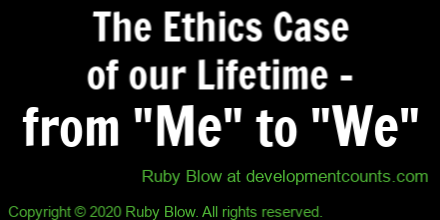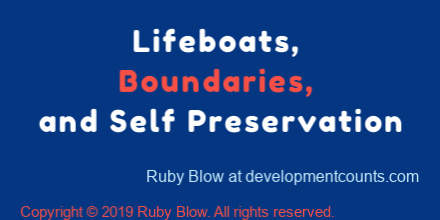Turning Toward
Life presents us with many opportunities to either turn toward people or turn away from them. When we “turn toward” people we are making a conscious decision to engage in the relationship. When you turn toward you are listening, showing interest and asking questions. At its best, turning toward is a sign of respect. At its worst, turning toward can be pursuing something with someone when you should let them be on their journey and you on yours.
For many of us, turning toward is natural, particularly in established relationships. Some of us are natural listeners and show curiosity and interest in others. Some people perceive those who turn toward as intrusive. They may like the attention from those who “turn toward” but also resent what can feel like an intense spotlight.
“Turning toward” can be challenging for anyone when they are hurt. However, there are some people who come closer when they are hurt. They naturally want to talk and sort things through, even if the other party wants some space. Generally speaking, it is natural to pull away from something or someone when we are emotionally or physically hurt. In some cases it is essential to our survival.
In some cases, turning toward someone who has repeatedly rebuffed you is a form of self abuse. It is a way to stay stuck or a way to stay still.
Turning Away
“Turning away” involves the vast range of everything from actively choosing to not listen to or attend to someone (or something) up to and including indifference. Actively choosing to turn away from someone can be an act of self preservation.
It can also be the absence of interest which results in disengagement (indifference). Either way, “turning away” is a process that can rapidly deteriorate any relationship. If nothing else, a relationship is the repeated decision to stay engaged with one another (commitment).
For some of us “turning away” is natural. Turning away might involve the idea that others should manage themselves and their own emotions and a desire not to interfere. It can be received as and may even be symbolic of or signal resentment, irritation, hurt or anger. Even when it is happening to you or when you are in fact “turning away”, it can be easily go unnoticed or missed. It is missed because it involves the absence of something.
When we stay involved with people who actively “turn away” from us or withhold their engagement, it can be harmful and very damaging to our esteem. When we choose to repeatedly turn away from someone to whom we have made a commitment, we are signaling to them that we do not desire the relationship. Signaling that we want to alter the agreement.
This “turning toward” and “turning away” stuff can be very tricky. It is often about our perception of another’s behavior, words and choices. If you are the one who repeatedly chooses to turn away, you run the risk of not having any sustained relationships. However, if you repeatedly turn toward an unhealthy or toxic relationship you run the risk of losing your self.
Essential Relationship Practice
- Value yourself. People who value themselves require other people to value them. They set limits. They respond swiftly to abuse. They experience abuse as the violation that it is rather than something they tolerate in order to experience the “positive aspects” of the relationship. A person who values themselves is willing to abandon their commitment to another if the terms of that commitment require them to abandon themselves.
- Value others. People who value others respect boundaries. Each person has a right to express themselves. Each person has a right to self determination and freedom of movement. People in a relationship have the right to space, yet they also create shared space. They have other relationships that matter. Those relationships provide critical outlets and balanced identity.
- Allow vulnerability. Being vulnerable and allowing vulnerability are part of the gateway to building trust. A big part of what meaningful relationships provide is respite/rest. The ability to be vulnerable is threatened when trust is broken. Trust is essential to the foundation of a relationship, however it is empty without closeness. Closeness is cultivated by the ability to be vulnerable and let someone in.
- Be consistent. Trust is built when people are consistent with one another. Consistency is a mutual practice among people who go on to have mutually committed relationships. Consistency involves following through and being reliable. Sometimes this involves providing reassurance to one another by turning toward. When one person is feeling uncertain and is expressing vulnerability, the other person listens and reassures.
What You Focus on Grows
What you focus on grows. This is true about both what we want and what we don’t want. If you focus on developing better relationship skills, you will have better relationships. If you focus on what others are doing wrong, this is what you will repeatedly witness and even experience.
We cannot change anything in our own experience by trying to change someone else. Resist the urge to criticize and blame. We are all capable of so much more closeness and fulfillment when we honor ourselves. We must trust that we are lovable and love ourselves, so that if and when we feel unloved or not cared for by someone else, it does not crush us.
Copyright © 2017 Ruby Blow. All rights reserved.
Share your thoughts on Linkedin, Facebook, Twitter or log in to one of your accounts below to comment. Subscribe to my YouTube channel.





